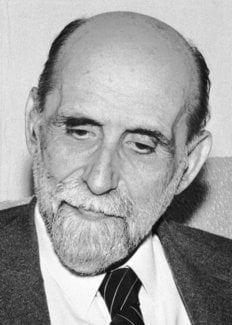Juan Ramón Jiménez
Biographical

Juan Ramón Jiménez (1881-1958) belonged to the group of writers who, in the wake of Spain’s loss of her colonies to the United States (1898), staged a literary revival. The leader of this group of modernistas, as they called themselves, Rubén Darío, helped Juan Ramón to publish Almas de violeta (Souls of Violet), 1900, his first volume of poetry. The years between 1905 to 1912 Ramón Jiménez spent at his birthplace, Moguer, where he wrote Elejías puras (Pure Elegies), 1908, La soledad sonora (Sonorous Solitude), 1911, and Poemas mágicos y dolientes (Magic Poems of Sorrow), 1911. His early poetry was influenced by German Romanticism and French Symbolism. It is strongly visual and dominated by the colours yellow and green. His later style, decisive, formally ascetic, and dominated by white, emerges in the poetic prose of his delicate Platero y yo (Platero and I), 1914, and is fully developed in Diario de un poeta recién casado (Diary of a Newly-Wed Poet), 1917, written during a trip to the United States, as well as in Eternidades (Eternities), 1918, Piedra y cielo (Stone and Sky), 1919, Poesía (Poetry), 1923, and Belleza (Beauty), 1923. In the twenties, Ramón Jiménez became the acknowledged master of the new generation of poets. He was active as a critic as well as an editor of literary journals. In 1930 he retired to Seville to devote himself to the revision of his earlier work. Six years later, as the result of the Spanish Civil War, he left Spain for Puerto Rico and Cuba. He remained in Cuba for three years and, in 1939, went to the United States, which became his residence until 1951, when he moved definitely to Puerto Rico. During these years Juan Ramón taught at various universities and published Españoles de tres mundos (Spaniards of Three Worlds), 1942, a book of prose portraits, and several collections of poems, among them Voces de mi copla (Voices of My Song), 1945, and Animal de fondo (Animal of Depth). The latter book, perhaps his best, clearly reveals the religious preoccupations that filled the last years of the poet’s life. Selections from most of his works were published in English translation in Selected Writings of Juan Ramón Jiménez and Three Hundred Poems, 1903-1953. Ramón Jiménez died in Puerto Rico in 1958.
This autobiography/biography was written at the time of the award and first published in the book series Les Prix Nobel. It was later edited and republished in Nobel Lectures. To cite this document, always state the source as shown above.
Juan Ramón Jiménez died on May 29, 1958.
Nobel Prizes and laureates
Six prizes were awarded for achievements that have conferred the greatest benefit to humankind. The 14 laureates' work and discoveries range from quantum tunnelling to promoting democratic rights.
See them all presented here.
